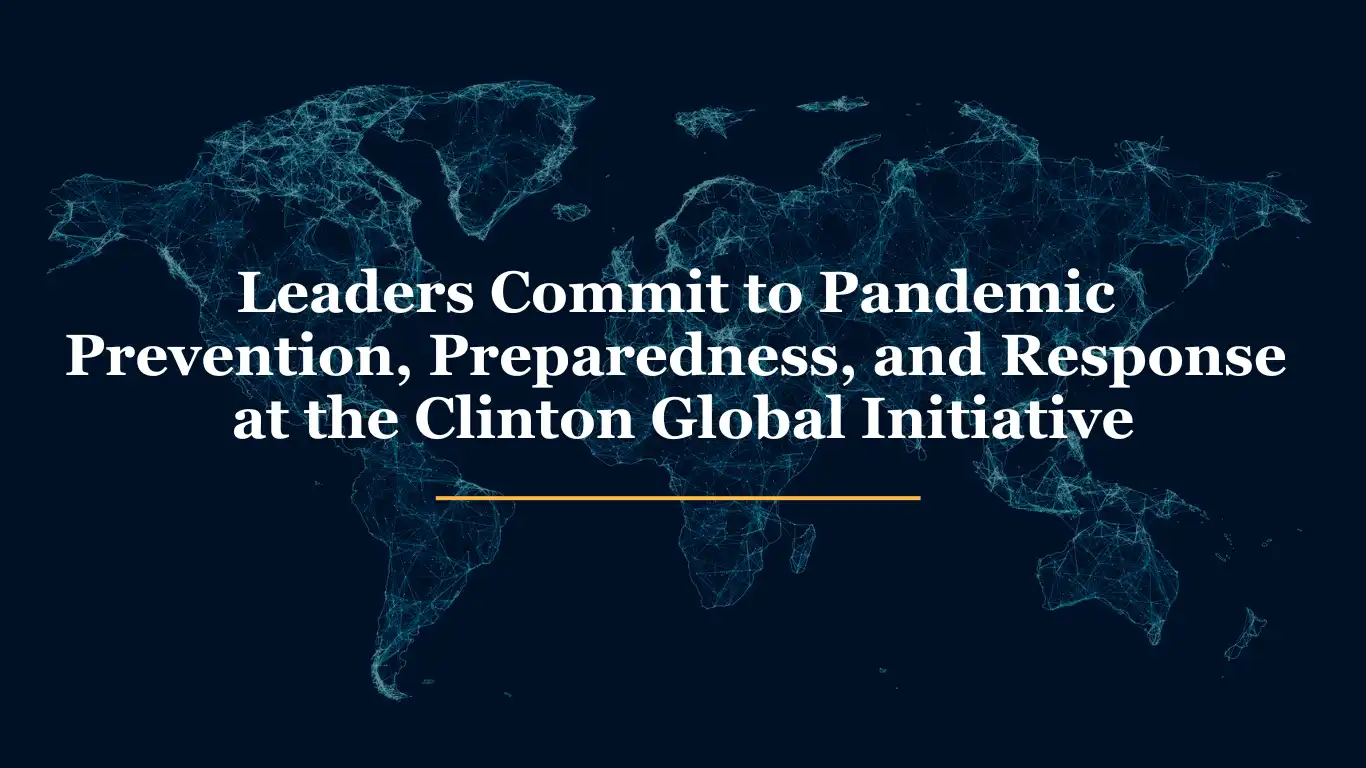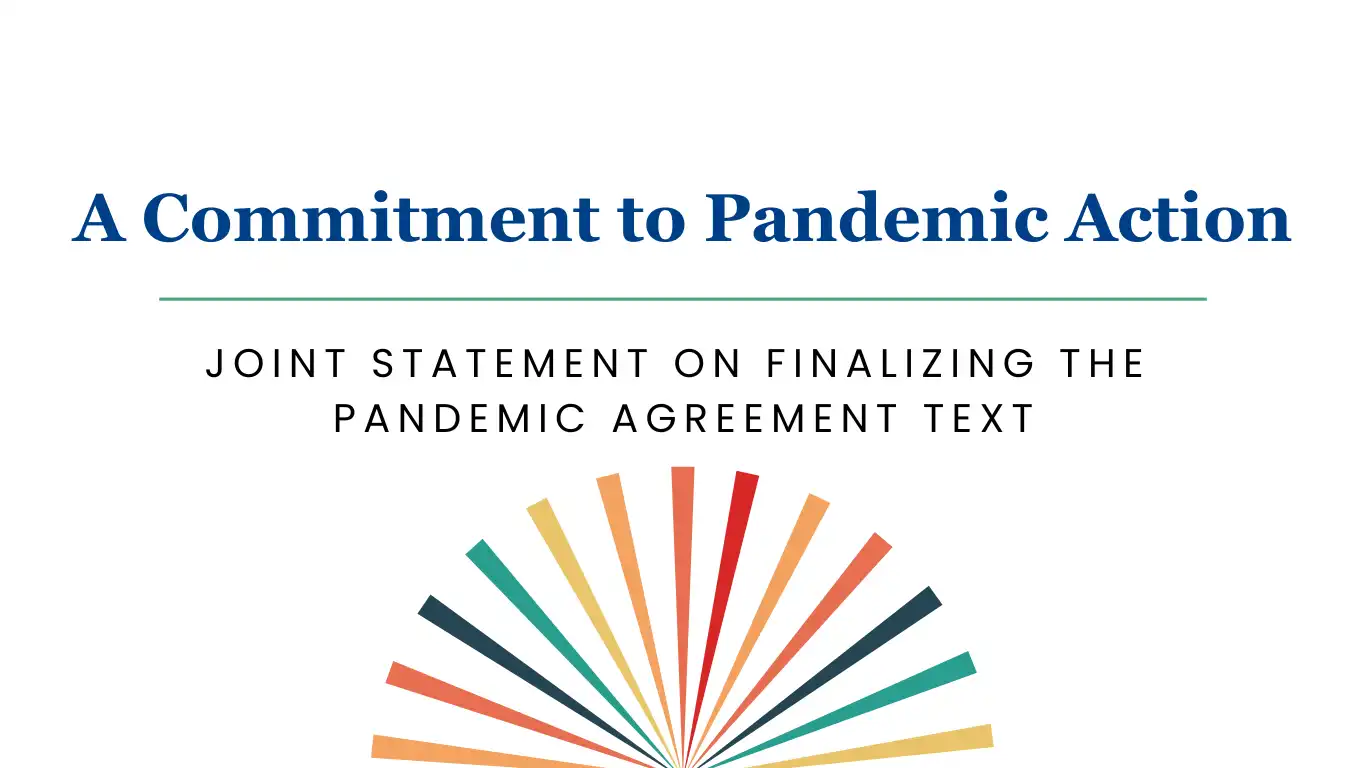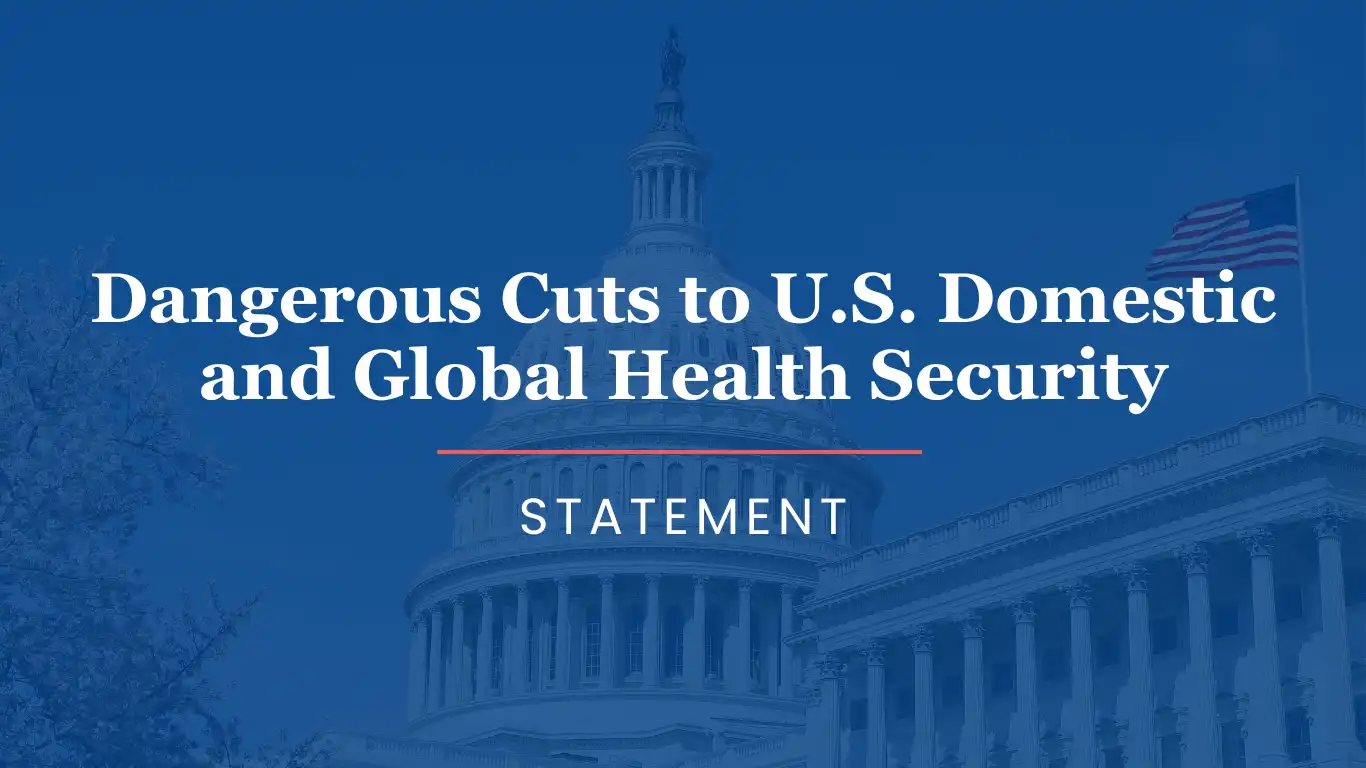PRESS RELEASE, Sept. 18, 2023, New York, NY — Pandemic Action Network is proud to join the Tony Blair Institute and the Global Health Security Consortium and others in committing to backing the Always On Agenda for pandemic prevention, preparedness, and response.
The Always On agenda challenges the false choice between preparing for a public health emergency and investing in the here and now. By investing today in pandemic-resilient and climate-resilient health systems, we can save lives now, as well as in the future; we can build life sciences for immediate human and economic returns, as well as in the event of a pandemic, and we can hone systems to improve the everyday delivery of primary health care services that build trust, engage communities and improve — for example — vaccine uptake year-round, not only in the event of a pandemic threat. Between pandemic threats, resilient health systems will save countless lives from a number of other high burden diseases.
A network of over 350 organizations, Pandemic Action Network advocates for policies and funding to elevate, facilitate, and sustain political leadership on pandemic prevention, preparedness, and response. Pandemic Action Network has made a commitment to the Clinton Global Initiative to garner the support of at least 50 partners to help push for at least five more governments to back the Always On agenda by September 2024.
Pandemic Action Network Executive Director & Co-Founder Eloise Todd said: “We will simply not be prepared to stop future outbreaks from becoming pandemics if systems are switched on and off. Instead, we need pandemic-resilient and climate-resilient health systems that can deliver right now, as well as in the event of a public health emergency. This Always On agenda goes beyond health systems and needs a whole-of-government approach, including investments in life science, R&D, and innovations that can help deliver results that benefit people now, to make sure there are whole-of-society plans in place for when a pandemic threat hits.”
“We are proud to leverage the collective power of our network to advocate for policies and funding that help protect humanity from another devastating pandemic crisis,” added Todd.
As a first step in building support for the commitments outlined today at the Clinton Global Initiative, Pandemic Action Network and more than 100 organizations are backing an agenda for action on the full pandemic prevention preparedness and response agenda, calling on leaders to report back on their progress in September 2024. This agenda for action includes a call for governments to build “better prepared cross-government systems, as well as end-to-end public health and life science ecosystems that are ‘always on’” particularly through developing “end-to-end, climate- and pandemic-resilient public health and life science ecosystems, operating continuously to… identify new pathogens, increase global manufacturing, and deploy clinical research capabilities so that when a pandemic threat emerges, countries and their capacities across government and society can pivot effectively”.
The Global Health Security Consortium’s Sir John Bell said: “An Always On health system is a win-win goal for political leaders in all countries. Effective, continuously switched on capabilities for early detection of pathogens and diagnosis of disease in populations, capacity for manufacturing, and effective clinical research systems enabling rapid development and deployment of vaccines and treatments will help governments solve the healthcare challenges of today and tomorrow.
A system like this that’s built and running all the time, powered by digital and data infrastructure, and harnessing genomic and other key technologies within our grasp today, will underpin health system transformation towards prevention, early diagnosis, and responsive and patient-centered treatment. This is an imperative for any society and government that is to affordably tackle existing, ever-growing healthcare demand and disease burden, improving patient outcomes. These same Always On capabilities and investments can then be pivoted to identify and respond to new and emerging pathogens, serving as the cornerstone of a pandemic-resilient system.”
Please direct inquiries to Courtney Morris.



